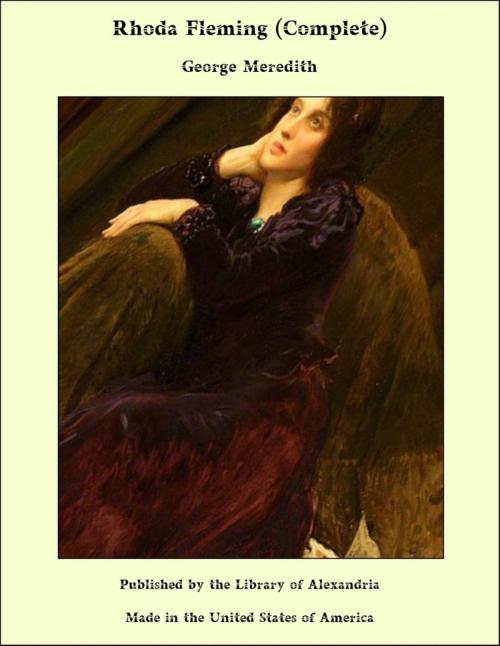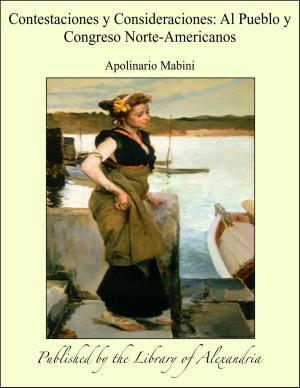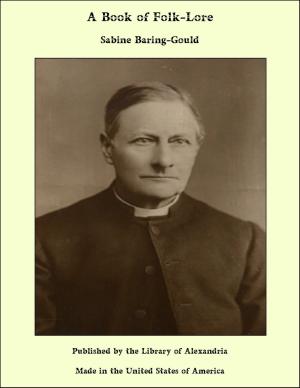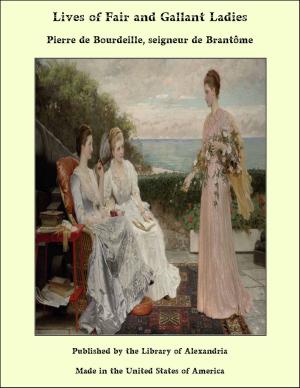Rhoda Fleming (Complete)
Nonfiction, Religion & Spirituality, New Age, History, Fiction & Literature| Author: | George Meredith | ISBN: | 9781465603661 |
| Publisher: | Library of Alexandria | Publication: | March 8, 2015 |
| Imprint: | Language: | English |
| Author: | George Meredith |
| ISBN: | 9781465603661 |
| Publisher: | Library of Alexandria |
| Publication: | March 8, 2015 |
| Imprint: | |
| Language: | English |
Critically, moreover, her admission of great poppy-heads into her garden was objected to. She would squander her care on poppies, and she had been heard to say that, while she lived, her children should be fully fed. The encouragement of flaunting weeds in a decent garden was indicative of a moral twist that the expressed resolution to supply her table with plentiful nourishment, no matter whence it came, or how provided, sufficiently confirmed. The reason with which she was stated to have fortified her stern resolve was of the irritating order, right in the abstract, and utterly unprincipled in the application. She said, `Good bread, and good beef, and enough of both, make good blood; and my children shall be stout.' This is such a thing as maybe announced by foreign princesses and rulers over serfs; but English Wrexby, in cogitative mood, demanded an equivalent for its beef and divers economies consumed by the hungry children of the authoritative woman. Practically it was obedient, for it had got the habit of supplying her. Though payment was long in arrear, the arrears were not treated as lost ones by Mrs. Fleming, who, without knowing it, possessed one main secret for mastering the custodians of credit. She had a considerate remembrance and regard for the most distant of her debts, so that she seemed to be only always a little late, and exceptionally wrongheaded in theory. Wrexby, therefore, acquiesced in helping to build up her children to stoutness, and but for the blindness of all people, save artists, poets, novelists, to the grandeur of their own creations, the inhabitants of this Kentish village might have had an enjoyable pride in the beauty and robust grace of the young girls,—fair-haired, black-haired girls, a kindred contrast, like fire and smoke, to look upon. In stature, in bearing, and in expression, they were, if I may adopt the eloquent modern manner of eulogy, strikingly above their class. They carried erect shoulders, like creatures not ashamed of showing a merely animal pride, which is never quite apart from the pride of developed beauty. They were as upright as Oriental girls, whose heads are nobly poised from carrying the pitcher to the well. Dark Rhoda might have passed for Rachel, and Dahlia called her Rachel. They tossed one another their mutual compliments, drawn from the chief book of their reading. Queen of Sheba was Dahlia's title. No master of callisthenics could have set them up better than their mother's receipt for making good blood, combined with a certain harmony of their systems, had done; nor could a schoolmistress have taught them correcter speaking. The characteristic of girls having a disposition to rise, is to be cravingly mimetic; and they remembered, and crooned over, till by degrees they adopted the phrases and manner of speech of highly grammatical people, such as the rector and his lady, and of people in story-books, especially of the courtly French fairy-books, wherein the princes talk in periods as sweetly rounded as are their silken calves; nothing less than angelically, so as to be a model to ordinary men.
Critically, moreover, her admission of great poppy-heads into her garden was objected to. She would squander her care on poppies, and she had been heard to say that, while she lived, her children should be fully fed. The encouragement of flaunting weeds in a decent garden was indicative of a moral twist that the expressed resolution to supply her table with plentiful nourishment, no matter whence it came, or how provided, sufficiently confirmed. The reason with which she was stated to have fortified her stern resolve was of the irritating order, right in the abstract, and utterly unprincipled in the application. She said, `Good bread, and good beef, and enough of both, make good blood; and my children shall be stout.' This is such a thing as maybe announced by foreign princesses and rulers over serfs; but English Wrexby, in cogitative mood, demanded an equivalent for its beef and divers economies consumed by the hungry children of the authoritative woman. Practically it was obedient, for it had got the habit of supplying her. Though payment was long in arrear, the arrears were not treated as lost ones by Mrs. Fleming, who, without knowing it, possessed one main secret for mastering the custodians of credit. She had a considerate remembrance and regard for the most distant of her debts, so that she seemed to be only always a little late, and exceptionally wrongheaded in theory. Wrexby, therefore, acquiesced in helping to build up her children to stoutness, and but for the blindness of all people, save artists, poets, novelists, to the grandeur of their own creations, the inhabitants of this Kentish village might have had an enjoyable pride in the beauty and robust grace of the young girls,—fair-haired, black-haired girls, a kindred contrast, like fire and smoke, to look upon. In stature, in bearing, and in expression, they were, if I may adopt the eloquent modern manner of eulogy, strikingly above their class. They carried erect shoulders, like creatures not ashamed of showing a merely animal pride, which is never quite apart from the pride of developed beauty. They were as upright as Oriental girls, whose heads are nobly poised from carrying the pitcher to the well. Dark Rhoda might have passed for Rachel, and Dahlia called her Rachel. They tossed one another their mutual compliments, drawn from the chief book of their reading. Queen of Sheba was Dahlia's title. No master of callisthenics could have set them up better than their mother's receipt for making good blood, combined with a certain harmony of their systems, had done; nor could a schoolmistress have taught them correcter speaking. The characteristic of girls having a disposition to rise, is to be cravingly mimetic; and they remembered, and crooned over, till by degrees they adopted the phrases and manner of speech of highly grammatical people, such as the rector and his lady, and of people in story-books, especially of the courtly French fairy-books, wherein the princes talk in periods as sweetly rounded as are their silken calves; nothing less than angelically, so as to be a model to ordinary men.















